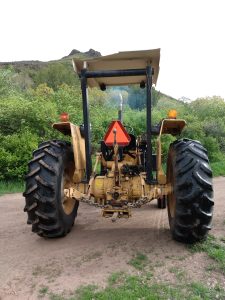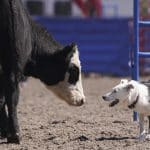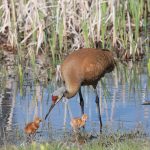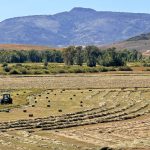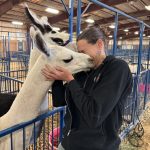CAA: New World Screw worm impacts cattle producers in the U.S. and Mexico
Community Agriculture Alliance
A recent trip to Mexico City with the Colorado Department of Agriculture at the invitation of the Cattlewomen’s Association of Mexico revealed the many perspectives of the closed border and the New World Screw Worm (NWS).
For the last year the border between the U.S. and Mexico has been closed, reopened and then closed again to the movement of Mexican cattle north to the U.S. for feeding and slaughter. This has caused significant disruption to markets in the U.S. and Mexico.
The average number of cattle moving into the U.S. from Mexico has been roughly 1.2 million for the last decade. Thirty-three to thirty-four million cattle are slaughtered annually in the U.S. versus about 7 million in Mexico. The re-emergence of NWS into Southern Mexico has impacted ranchers in the northern Mexican states where the majority of larger ranches are.
The closed border has caused these ranchers to lose about $30 million per month. At the same time cattle and beef prices have increased significantly in the U.S.
The increased value of cattle has made ranchers and feeders more profitable while processors are losing money, about $115.97 per head. This is due to their reluctance to increase beef prices to reflect the new reality. But with the price increase that has occurred, demand has not decreased.
NWS is present in southern Mexico with 600 active livestock sites. These sites are a long way from the U.S. border, the closest being 700 miles from the tip of Texas. And fly traps set across the mid and northern states have yet to yield a fly, the adult of NWS maggots.
That’s the good news. However, when questioning the Mexican authorities at their equivalent of Animal and Plant Inspection Service, Animal Research Service and Ministry of Agriculture about quarantine procedures and cattle movement controls no good answers were given beyond that they haven’t the infrastructure. Importantly, NWS also infects birds and wildlife making control even more difficult. The good news for many U.S. states is that the fly and maggots cannot overwinter in freezing temperatures, meaning that any infestations in many states will be self-limiting.
So, what is the answer? Reopen the border? Not yet I think. Until controls to livestock movement are instituted it would be too easy for cattle from the south to come north. And there is that pesky wildlife problem. The Mexican authorities estimated it would be 20 years before they are able to once again eradicate the NWS to south of Panama.
The answer in the meanwhile may be traceability. The cattlewomen we spoke with, all from the north, use electronic identity numbered ear tags (EID). Potentially we could allow exportation of livestock with a proven record of being born and raised in the northern states with no travel south. This would have to be rigorously checked at the border as there have been irregularities with fraudulent ear tags. But given the decreasing cattle herd in the U.S., we can either import cattle or beef.
Dr. Kathryn Bedell is a rancher, local food advocate and a Colorado Agriculture Commission member.

Support Local Journalism

Support Local Journalism
Readers around Steamboat and Routt County make the Steamboat Pilot & Today’s work possible. Your financial contribution supports our efforts to deliver quality, locally relevant journalism.
Now more than ever, your support is critical to help us keep our community informed about the evolving coronavirus pandemic and the impact it is having locally. Every contribution, however large or small, will make a difference.
Each donation will be used exclusively for the development and creation of increased news coverage.
